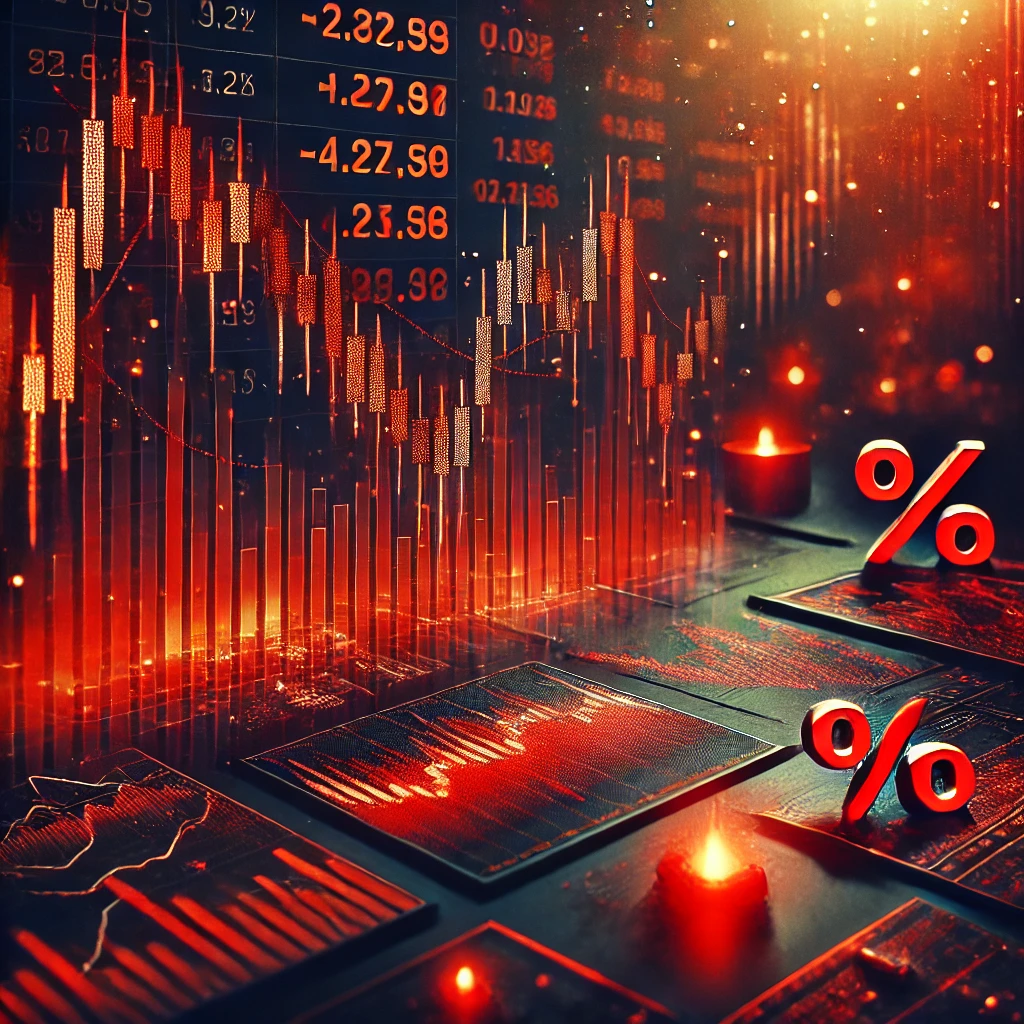Investors: Don’t Fall Prey to ‘Environmental Uncertainty’ As Tariffs Roil the Market—Try This Instead
Market volatility fueled by fluctuating tariffs and environmental uncertainty can be unnerving for even the most seasoned investors. Watching your portfolio swing with every news headline about trade wars or climate change legislation can tempt you to make rash decisions. However, reacting emotionally to these external pressures can often lead to poor investment outcomes. So, how can you navigate these turbulent waters and protect your investments? This article will explore the impact of environmental uncertainty and tariffs on the market and provide a practical, data-driven approach to building a resilient portfolio.
Understanding the Impact of Environmental Uncertainty
Environmental uncertainty encompasses a broad range of factors, from climate change regulations and carbon emissions targets to resource scarcity and extreme weather events. These factors can significantly impact businesses across various sectors. For example, companies heavily reliant on fossil fuels may face declining profits due to stricter emission standards, while renewable energy companies could experience a surge in demand. This uncertainty makes it challenging for investors to predict future market trends and allocate capital effectively.
Furthermore, the growing emphasis on Environmental, Social, and Governance (ESG) investing adds another layer of complexity. Investors are increasingly scrutinizing companies’ environmental performance, making it essential for businesses to demonstrate sustainability and responsible practices. Ignoring these trends can lead to reputational damage and decreased investor interest.
The Ripple Effect of Tariffs
Tariffs, essentially taxes on imported goods, are designed to protect domestic industries and influence international trade. However, they can have unintended consequences, creating ripple effects across the global economy. When tariffs increase, the cost of imported goods rises, potentially leading to inflation and reduced consumer spending.
Businesses that rely on imported materials may see their profit margins shrink, while those focused on exporting could face retaliatory tariffs from other countries. This uncertainty makes it difficult for investors to gauge the long-term impact of tariffs on specific companies and industries. Predicting which companies will thrive and which will struggle becomes a complex equation with numerous variables.
Navigating the Storm: A Data-Driven Approach
Instead of succumbing to fear and making impulsive investment decisions based on fluctuating tariffs and environmental uncertainty, consider a more strategic, data-driven approach:
Diversification is Key
Diversification remains a cornerstone of sound investment strategy. Don’t put all your eggs in one basket. Spread your investments across different asset classes, sectors, and geographic regions. This helps mitigate the impact of any single event, like a new tariff or environmental regulation, on your overall portfolio.
- Consider investing in a mix of stocks, bonds, real estate, and commodities.
- Within equities, diversify across different sectors, such as healthcare, technology, and consumer staples.
- Look for international investment opportunities to reduce your reliance on any single country’s economic performance.
Focus on Long-Term Growth
Short-term market fluctuations are inevitable. Don’t let the daily news cycle dictate your investment decisions. Focus on the long-term growth potential of your investments. Look for companies with strong fundamentals, a solid track record of profitability, and a commitment to adapting to changing environmental regulations.
Embrace ESG Factors
Integrating ESG factors into your investment analysis can help you identify companies that are better positioned to navigate the challenges of environmental uncertainty. Companies with strong ESG profiles often demonstrate greater resilience and long-term sustainability. Utilize ESG ratings and research to assess a company’s commitment to environmental responsibility and social impact.
Stay Informed, But Don’t Overreact
Staying informed about global events and market trends is crucial. However, avoid overreacting to every news headline. Remember that market volatility is normal, and short-term fluctuations don’t necessarily reflect the long-term health of your investments. Make informed decisions based on data and analysis, not emotion.
Building a Resilient Portfolio
Building a resilient portfolio that can weather the storm of environmental uncertainty and fluctuating tariffs requires a disciplined and strategic approach. Focus on diversification, long-term growth, and the integration of ESG factors. By adopting a data-driven approach and avoiding emotional reactions to market volatility, you can navigate these challenges and build a portfolio that is positioned for long-term success. Remember, informed investors are empowered investors.
Consult a Financial Advisor
Navigating the complexities of environmental uncertainty and tariff implications can be challenging. Consulting with a qualified financial advisor can provide personalized guidance tailored to your specific financial goals and risk tolerance. A financial advisor can help you develop a comprehensive investment strategy that considers these factors and positions you for long-term success.


